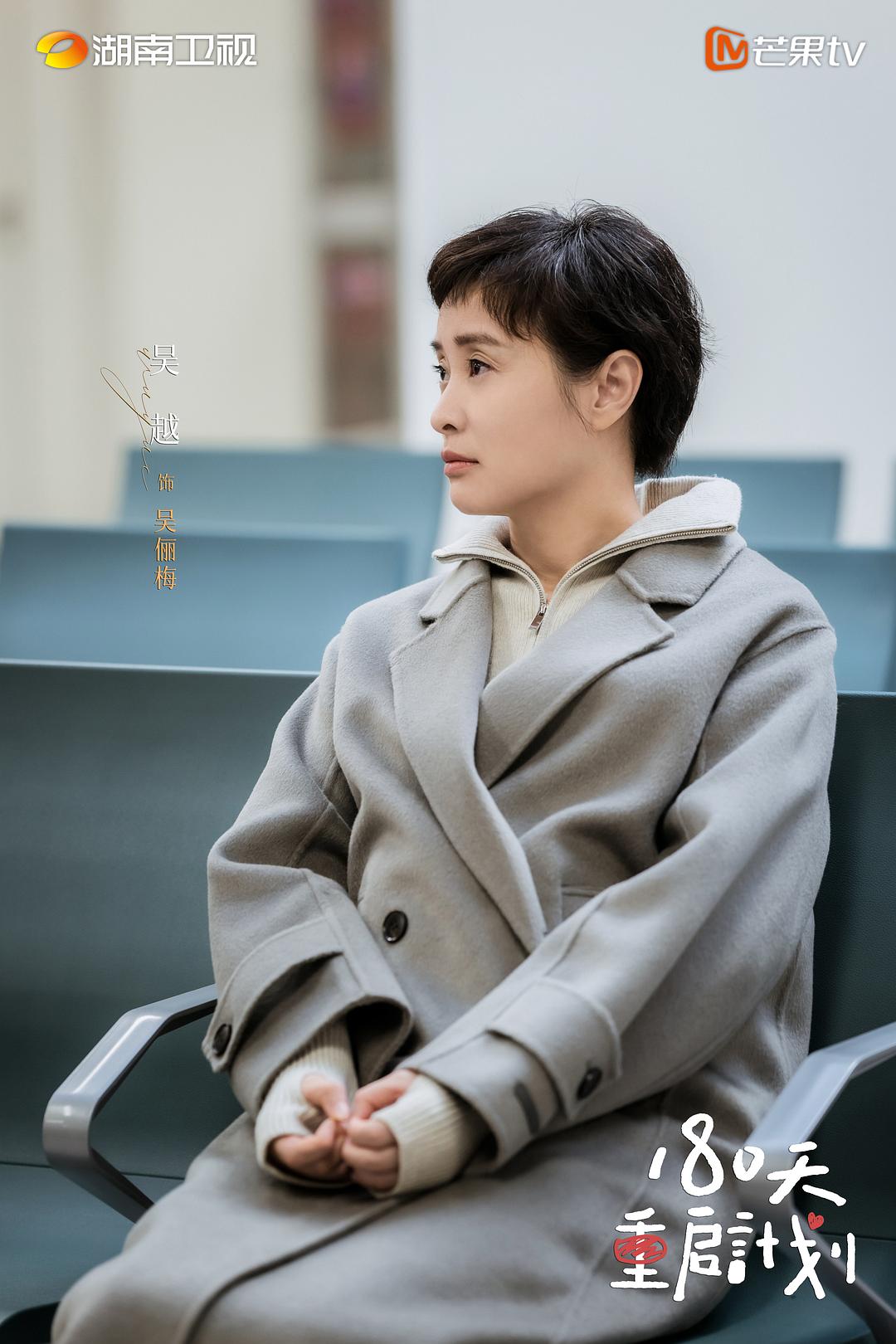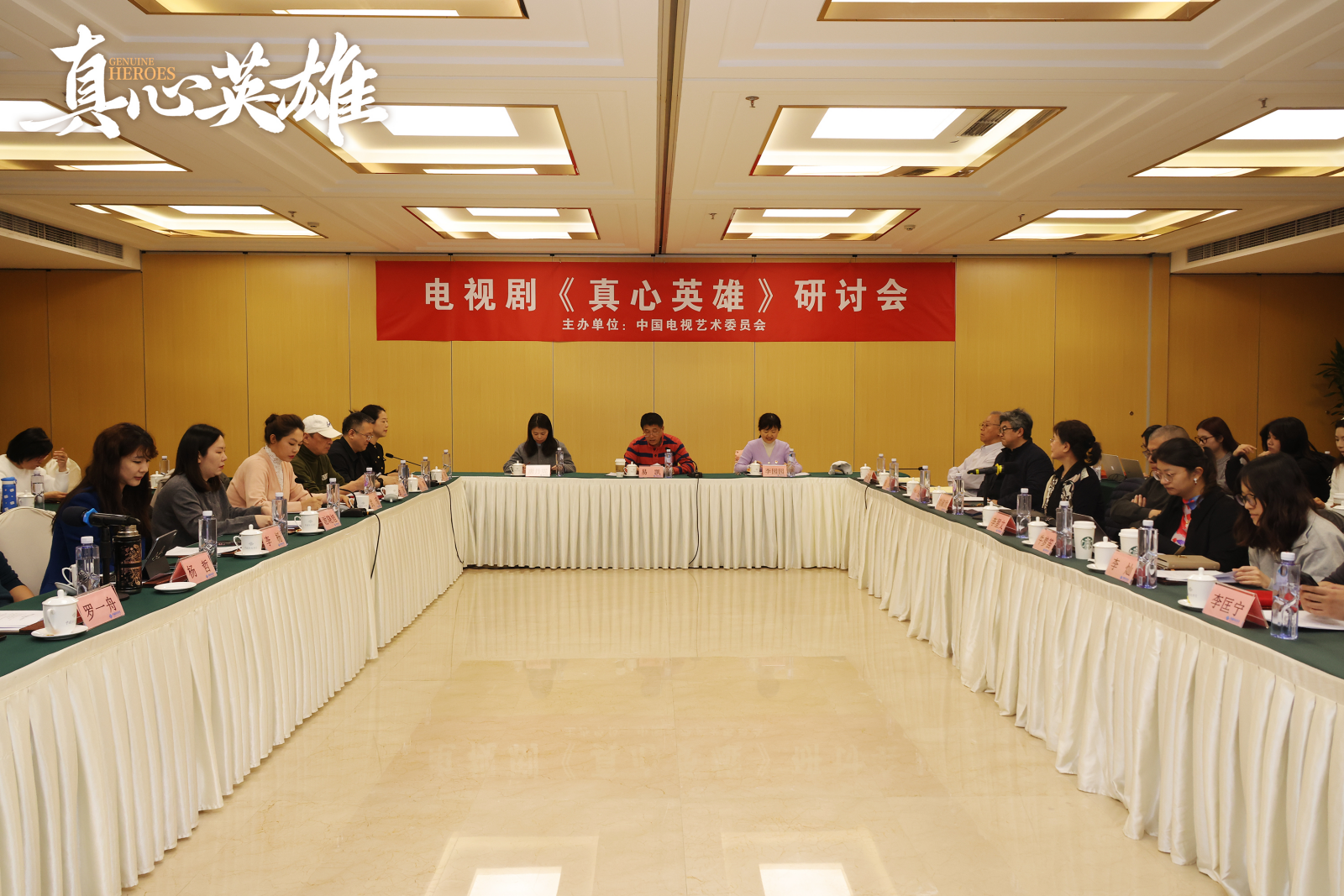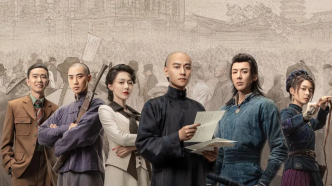
Warning: This article contains serious spoilers
In late May, Joy of Life 2 dominated the drama market. This had two effects. First, it exposed the true colors of other bad dramas in the same period, such as some S+ dramas that were heavily promoted before they were broadcast but completely failed. Second, some works with good quality but relatively unpopular and niche genres and insufficient publicity were ignored by the audience.
The legendary drama "Tian Xing Jian", directed by Lou Jian and Wei Lizhou, written by Bai Yicong, and starring Qin Junjie, Liu Yuning, Huang Mengying and others, belongs to this category.
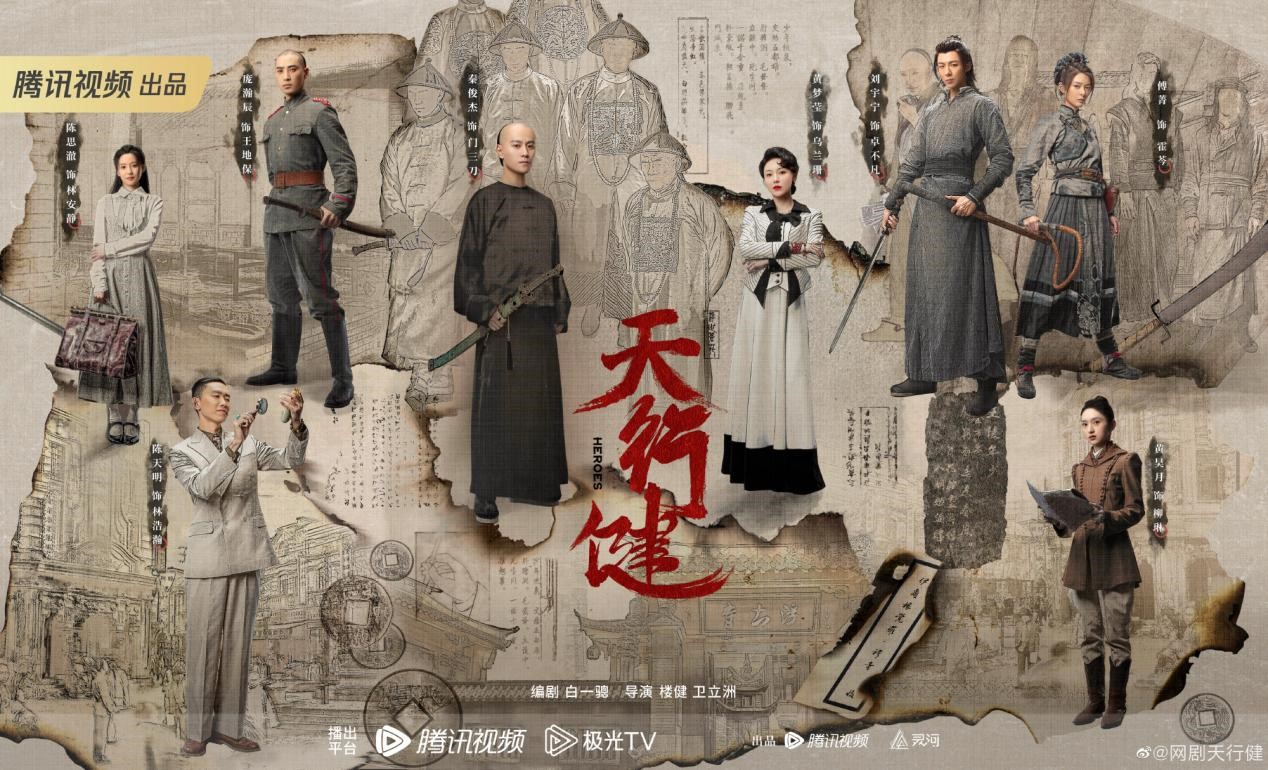
Poster of "The Walking Stone"
"Tian Xing Jian" started filming and finished shooting in 2022, released a trailer in June 2023, and then aired on May 8 this year, which was "congenitally insufficient" in terms of publicity and promotion; "Joy of Life 2", also a male-oriented drama, attracted the vast majority of attention and discussion after its broadcast. The broadcast effect of "Tian Xing Jian" was not satisfactory.
However, most viewers who have watched this drama were attracted by the plot and gave it good reviews. Although it is unpopular, "Heavenly Movement" is indeed a good drama.
The broadcast of "Heavenly Movement" was dull. In addition to factors such as publicity and schedule, it was also related to the type of legendary drama of the period. It should be admitted that legendary drama of the period is not the mainstream and popular type of drama in the current market. Although legendary dramas were once in the limelight at the beginning of the new century, such as "The Medicine King of the Qing Dynasty", "The Dye House", "The Bloody Sunset", "Qiao Family Courtyard", "Fan Mansion Courtyard", "China's Past", "The Great Porcelain Merchant", etc.; but some dramas of the same type broadcast in recent years have had dismal results, such as "The Legend of the Strange Man in the Early Republic of China", the first web drama produced by Chen Kaige, and "Five Elements Family" adapted from the popular web novel IP, which are almost not available.
How to judge legendary drama?
The first major feature of legendary drama is that it focuses on "strange people and strange things".
"Strange people" usually refer to those who have special talents, unique personalities or backgrounds, such as chivalrous knights with special skills who walk through troubled times to fight for justice, or new-school people who have modern knowledge and concepts and dare to challenge old customs.
"Strange things" often have a strong mysterious color, such as unsolved mysteries, supernatural phenomena, or complex conspiracies surrounding major turning points in history.
The screenwriter and producer of this drama, Bai Yicong, has previously participated in "Ghost Blows Out the Light: The Mystic Nine", "Grave Robbers' Chronicles", "The Golden Eyes", "Sand Sea", "The Mystic Nine", "Ultimate Notes" and other "tomb robbing" themed dramas as a screenwriter or producer. He is very familiar with writing the "strange things" of "Tian Xing Jian", it just turned it into a "treasure hunt".
The story begins a few months before the 1911 Revolution, when a treasure map in the imperial palace was stolen, triggering a search by various forces for the legendary "Jingtan Secret Treasure", and they sent out all kinds of "strange people" to hunt for the treasure.
Mu Qing, nicknamed "Men Sandao" (played by Qin Junjie), was once a sword-bearing guard in front of the emperor. He represents the power of the Qing court. He must not only uncover the forces attempting to rebel, but also recover the treasure.
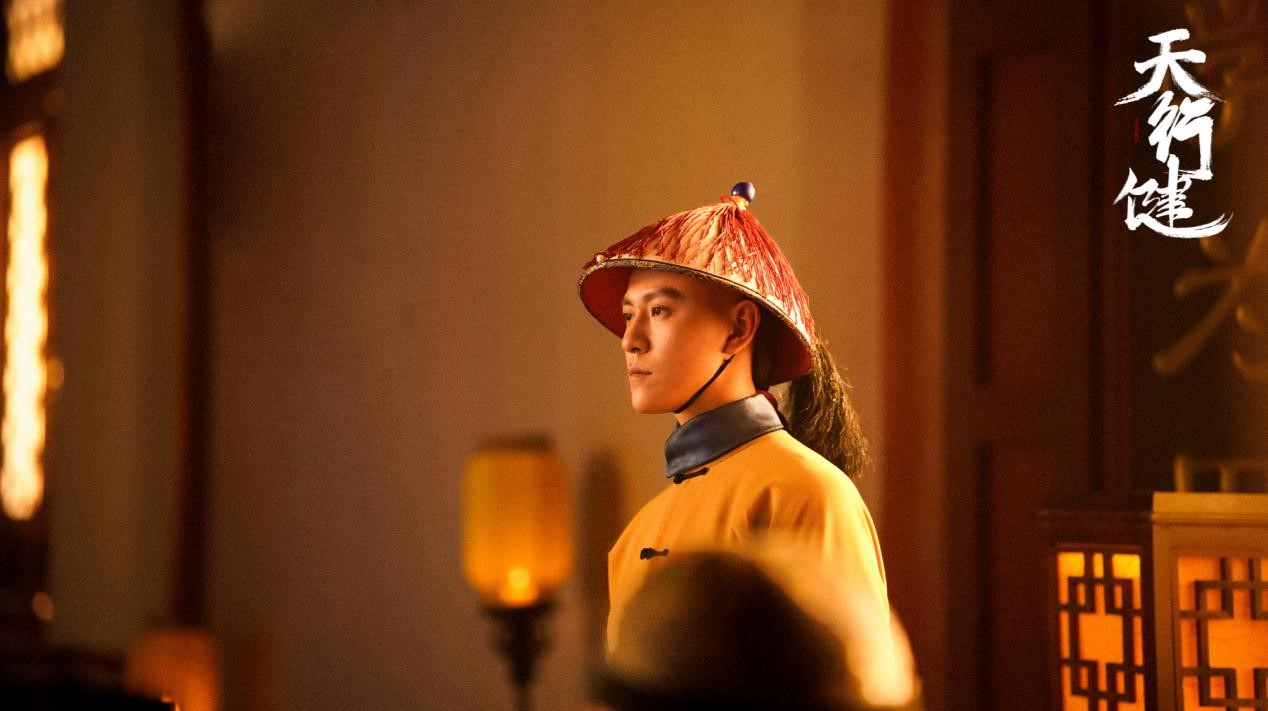
"The Three Swordsmen" (played by Qin Junjie)
Zhuo Bufan (played by Liu Yuning), the leader of the Jianghu sect "Rong Tianling", also wants to obtain the martial arts secrets in the treasure to restore his sect.
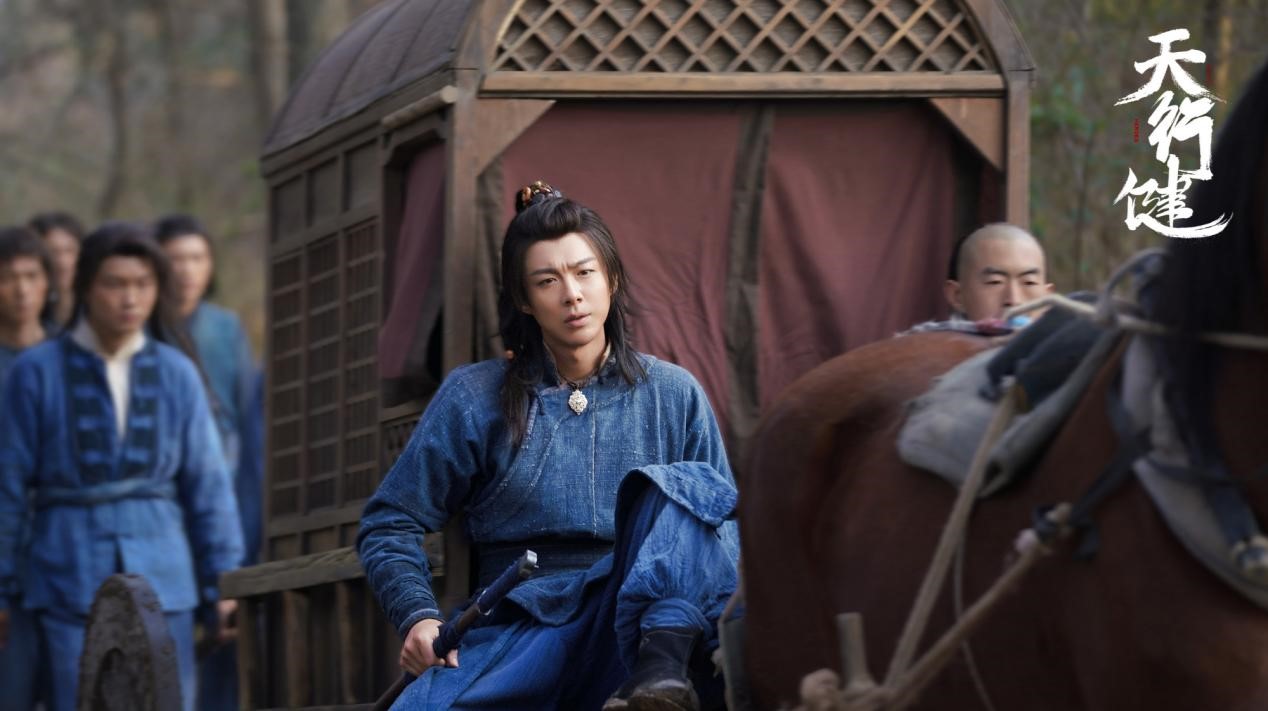
Zhuo Bufan (played by Liu Yuning)
Wang Dibao (Pang Hanchen), a county constable who gave up his studies to join the army due to the abolition of the imperial examination system, is accidentally involved in the case in order to solve it.
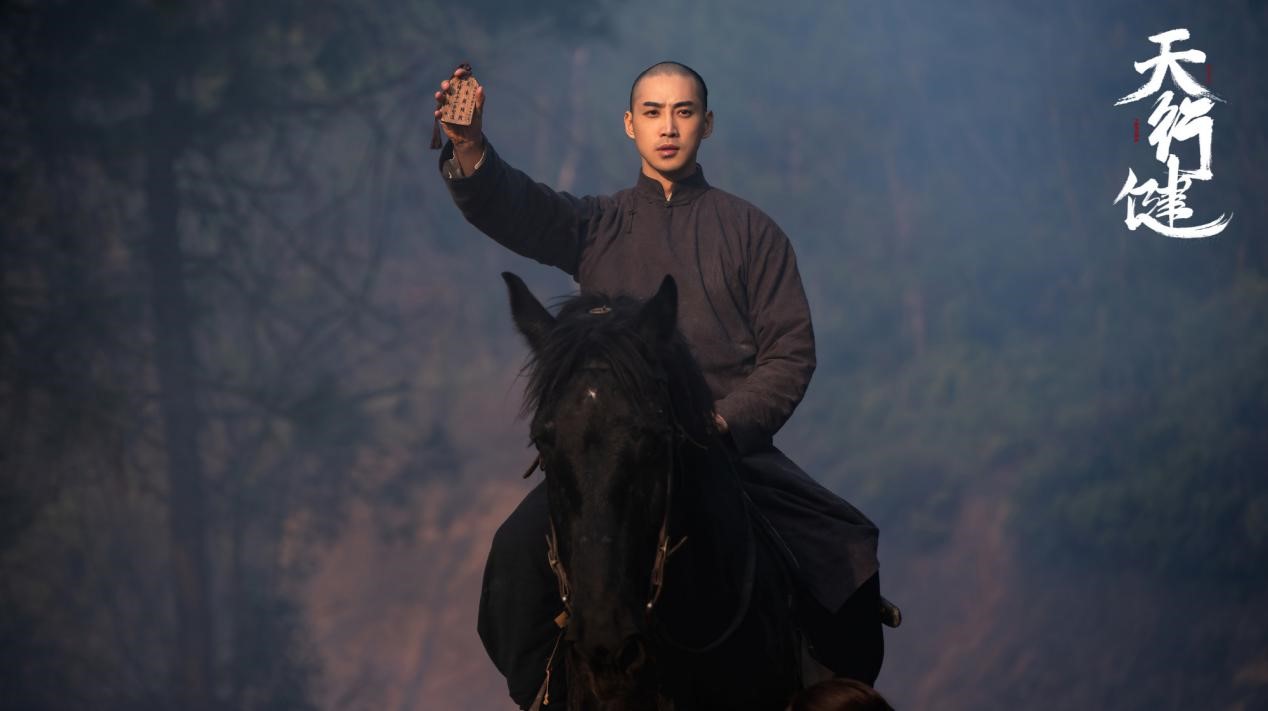
Wang Dibao (played by Pang Hanchen)
Behind the three male protagonists there are hidden struggles of different forces.
Behind Men Sandao were the revolutionaries represented by the Tongmenghui. The revolutionaries hoped to win over Men Sandao and use the treasure as revolutionary funds - in fact, this was also the original intention of the treasure.

The revolutionaries strive to win the three swords of the door
Zhuo Bufan cooperates with Prince Qi (Liu Peiqi), another backward reactionary force in the Qing court, who hopes to obtain treasures to rebel.
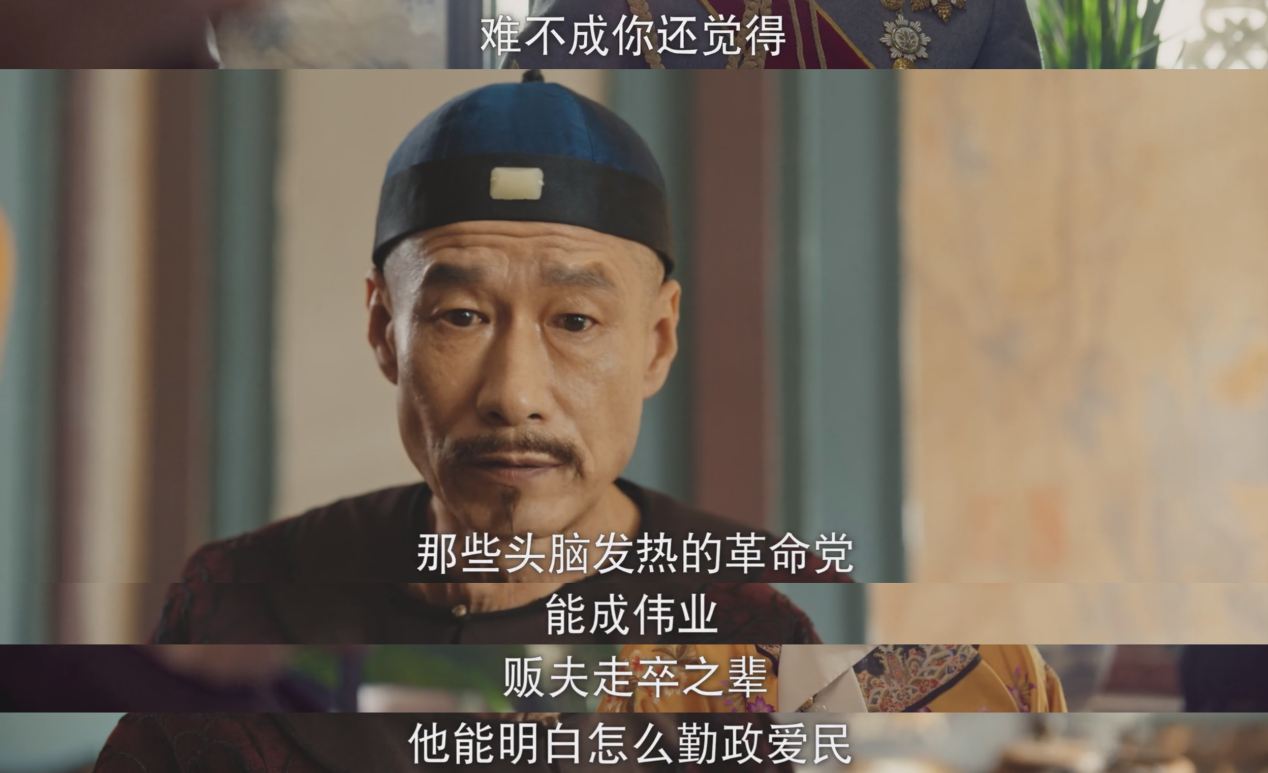
Although Prince Qi (Liu Peiqi) attempted to rebel, he was still a conservative force at heart.
There are two forces behind Wang Dibao. One is the Beiyang warlords. Wang Dibao, who survived a disaster, transformed himself into a Beiyang officer. The Beiyang warlords coveted the treasure. The other force is the insatiable Japanese invaders. Wang Dibao's close lover is actually a spy sent by the Japanese...
Through the treasure hunt, "Tian Xing Jian" involves different forces of the Qing court (the Imperial Household Department, the former reformists, the rebels, the loyal court constables), fringe martial arts sects, revolutionaries and foreign powers, and captures the elements of the late Qing Dynasty, the era, the palace, treasure hunting, martial arts, revolution, etc. It is truly "no wonder that nothing is left untold."
"The Walking Sword" also meets the second major characteristic of legendary dramas of the period: the coexistence of historical sense and legendary/popularity.
No matter how "miraculous" the plot of a legendary drama is, it is not a fictional drama, but is based on real historical events or characters. This reliance gives the story a strong sense of historical substitution and cultural identity. "Heavenly Movement" is set in 1911 and obviously carries the weight of history. It not only tells stories about extraordinary people and events, but also attempts to reproduce the magnificent social changes and national awakening of that era.
Legendary dramas are not historical dramas. Although they are based on real historical backgrounds, they are not bound by historical facts. Instead, they boldly integrate fictional plots and characters, create imaginative story lines through artistic processing, and balance the realism of history with the entertainment of popular culture, so that the audience can feel the weight and depth of history while satisfying the public's pursuit of storytelling and entertainment. This is why the treasure hunt in "Heaven's Path" that affected various political forces in the late Qing Dynasty came about.
The third characteristic of legendary dramas of the period that is often overlooked is that family, country and the world/family and country sentiments are their common value basis.
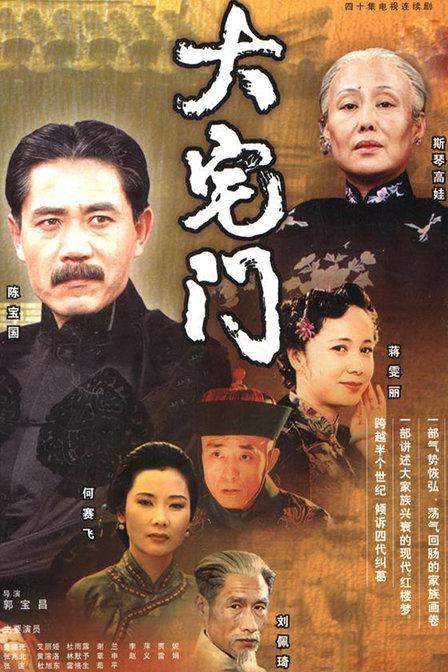
Poster of "The Mansion Gate"
In the past, we were more attracted to the legendary stories of the family legendary dramas in the late Qing Dynasty and early Republic of China, represented by "The House of the Grand Cicada". In fact, almost all of these dramas have revolutionary characters, and the big families will basically transform into progressive forces in the wave of defending the country; interweaving the fate of individuals and families with the fate of the entire nation is a common feature of family legendary dramas.
"Heaven's Movement" is no exception. Under the guise of a treasure hunt, it explores the process of progressive forces in the late Qing Dynasty seeking direction and building faith amid frustration and confusion.
Many viewers who were not familiar with or had little interest in legendary dramas became interested in "Tian Xing Jian" because it is one of the few dramas in recent years that truly showcases the charm of legendary dramas.
On the production level, Lou Jian (The Imperial Coroner) and Wei Lizhou (Ultimate Notes) are particular about the arrangement of light and shadow, editing director Lu Di (The Bad Kids, The Long Season) makes the narrative efficient and compact, and art director Liu Yongqi (The Three-Body Problem) gives the play a real historical atmosphere... It is visibly the product of careful production.
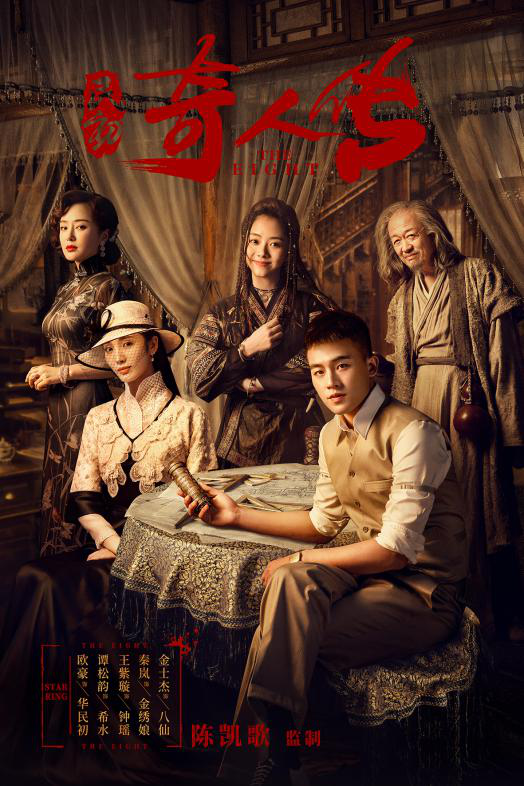
Poster of "The Legend of the Early Republic of China"
In terms of content, the "strange people and strange things" in legendary dramas naturally have popular genes, but works like "The Legend of Strange People in the Early Republic of China" or "Five Elements Family" are also particularly "strange", so why do they have such a bad reputation? In the final analysis, although the plots of legendary dramas are bizarre, no matter how bizarre or incredible the plots are, they must follow the internal logic and should be based on some reasonable foundation or setting so that the audience can accept and be convinced while being surprised. This places high demands on narrative logic. The screenwriter needs to carefully lay out the clues to form a closely connected whole and avoid frequent abrupt or unsolvable loopholes, otherwise it will not be a legend but a fabrication.
The main plot of "Heavenly Movement" revolves around treasure hunting. The series is like a "road drama". The protagonists traveled to Beijing, Tianjin, Shanghai, Shanxi, Fujian and other places to hunt for treasures. Various suspense was constantly revealed during the treasure hunt. For example, to open the "Jingtan Secret Treasure", the seals of the four chief monks of the Southern Shaolin Temple's Discipline Court, Dharma Court, Prajna Hall, and Bodhi Court must be collected. The seals were passed down from the chief monks to the four successors. So who are the four successors? In what form was the seal left to the four successors? The plot is closely linked, and the cause and effect are clear. Every event and every decision has its reasonable motivation and subsequent impact.
Through the carefully planned suspense, unexpected but reasonable revelations, and climax-filled story advancement, "Heavenly Movement" continues to stimulate the audience's curiosity and desire to explore. The plot can lead the audience and make the audience who are immersed in the play unable to stop, which is a great skill.
"Heavenly Movement" is not only popular, but also has a deep sense of history and patriotism. This is mainly reflected through the growth line of the male protagonist Men Sandao.
Men Sandao was a reformist, which shows his courage and foresight. However, the Reform Movement of 1898 failed after only 103 days. Emperor Guangxu was placed under house arrest, Kang Youwei and Liang Qichao went into exile, and Tan Sitong and other six gentlemen were executed. Men Sandao was also imprisoned for twelve years.
After being released from prison, Men Sandao remained deeply loyal to the Qing court. Although he regretted the failure of the reform and was saddened by the country's poverty and weakness, he never thought of overthrowing the Qing court. This was related to the education he had received since childhood and the class he belonged to. Men Sandao was born in the Bordered Yellow Banner, which was the first of the three upper banners in the Qing Dynasty and was directly under the emperor. He "naturally" represented the identity and position of the ruling class.
When Men Sandao went to the people to investigate and hunt for treasures, he had a certain sense of superiority in his high status. He also habitually knelt down when facing people of higher status than him. The feudal hierarchy concept was deeply rooted in people's minds.
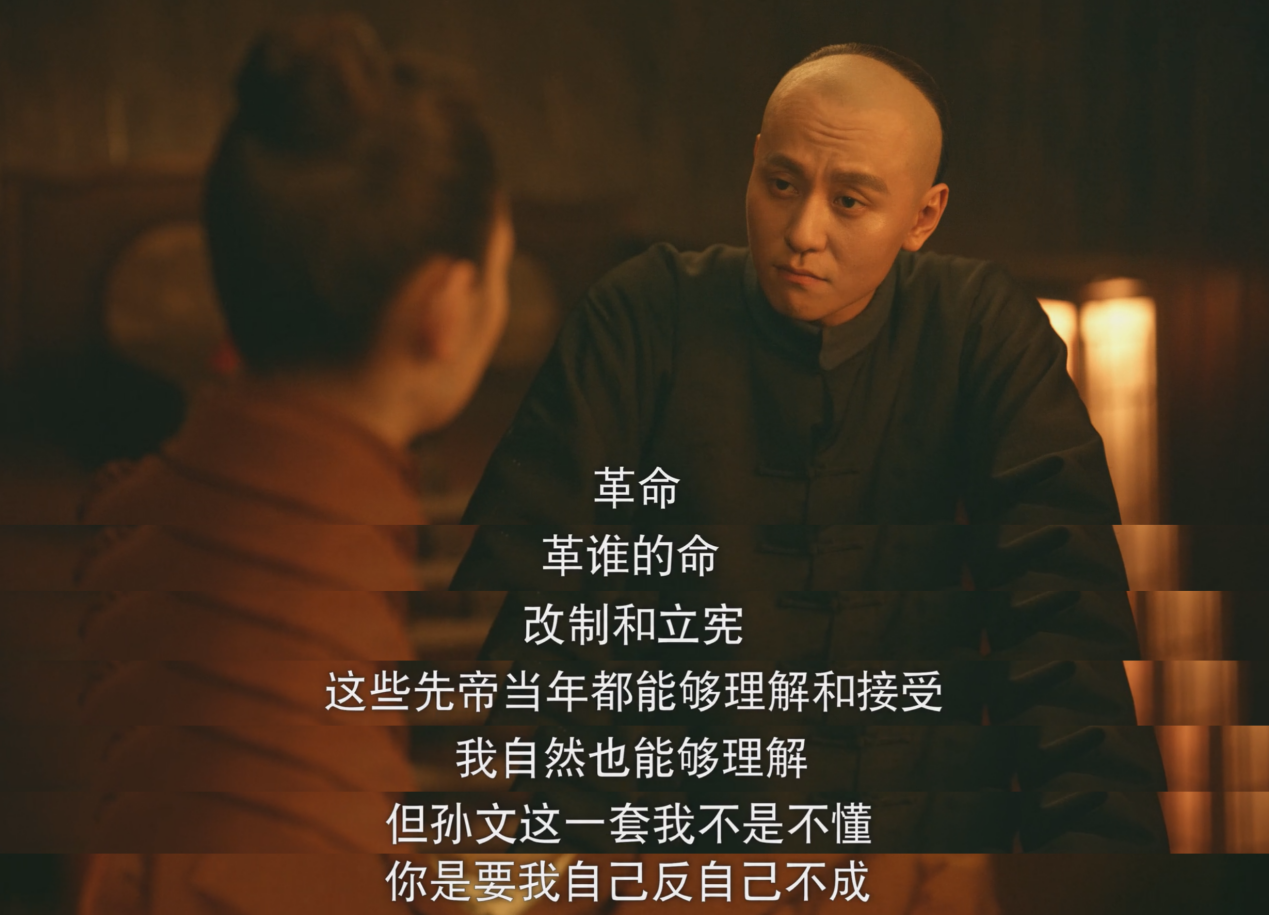
Men Sandao couldn’t understand the revolution at first because he couldn’t “revolutionize himself”
Undoubtedly, Men Sandao's growth constitutes another main plot line of "Tian Xing Jian" - how he transformed step by step from a supporter of imperial power to a revolutionary who wanted to revolutionize himself.
This is one of the most attractive parts of the series. "Tian Xing Jian" has a clever plot design and delicate emotional construction. The key nodes of Men San Dao's transformation are impressive.
One is that Men Sandao discovered the true identity and ambitions of his mentor - his mentor turned out to be an opponent of the Qing court and a supporter of the revolution, which confused Men Sandao.
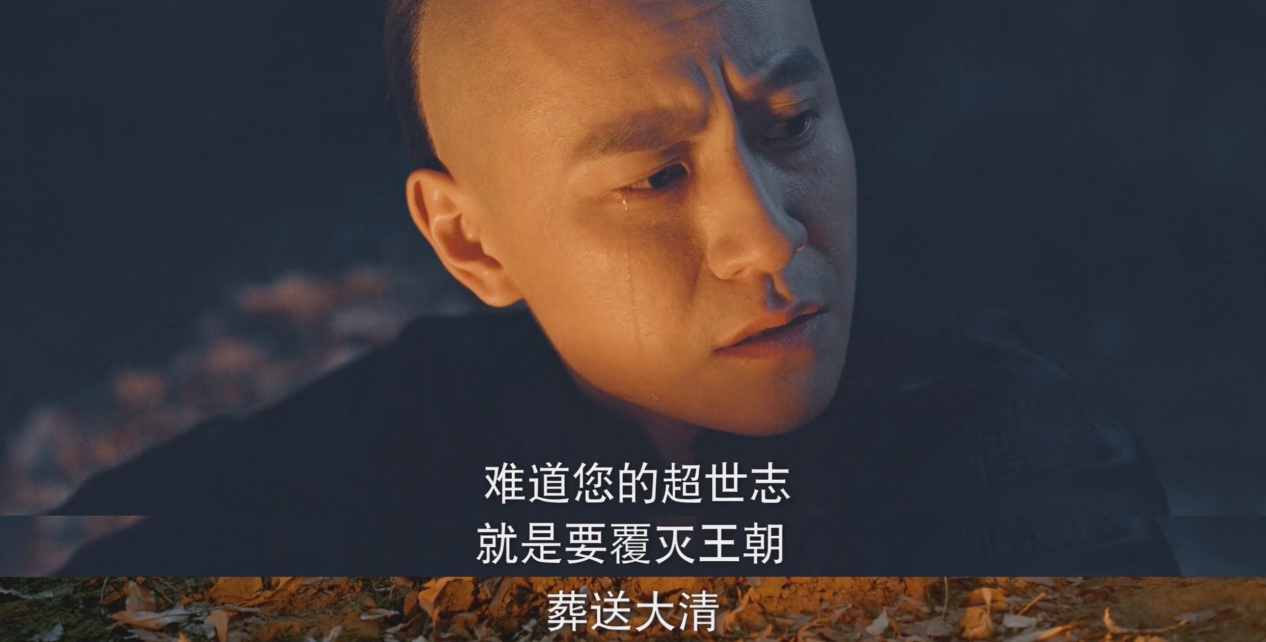
Men Sandao muttered a monologue in front of his master's tomb
One is that when Men Sandao walked among the people, he was indignant at the intrusion of foreigners into people's homes, and he truly discovered the suffering of the people - this made Men Sandao sad and distressed. Is this the Qing court that he wants to be loyal to? Men Sandao had an identity crisis.
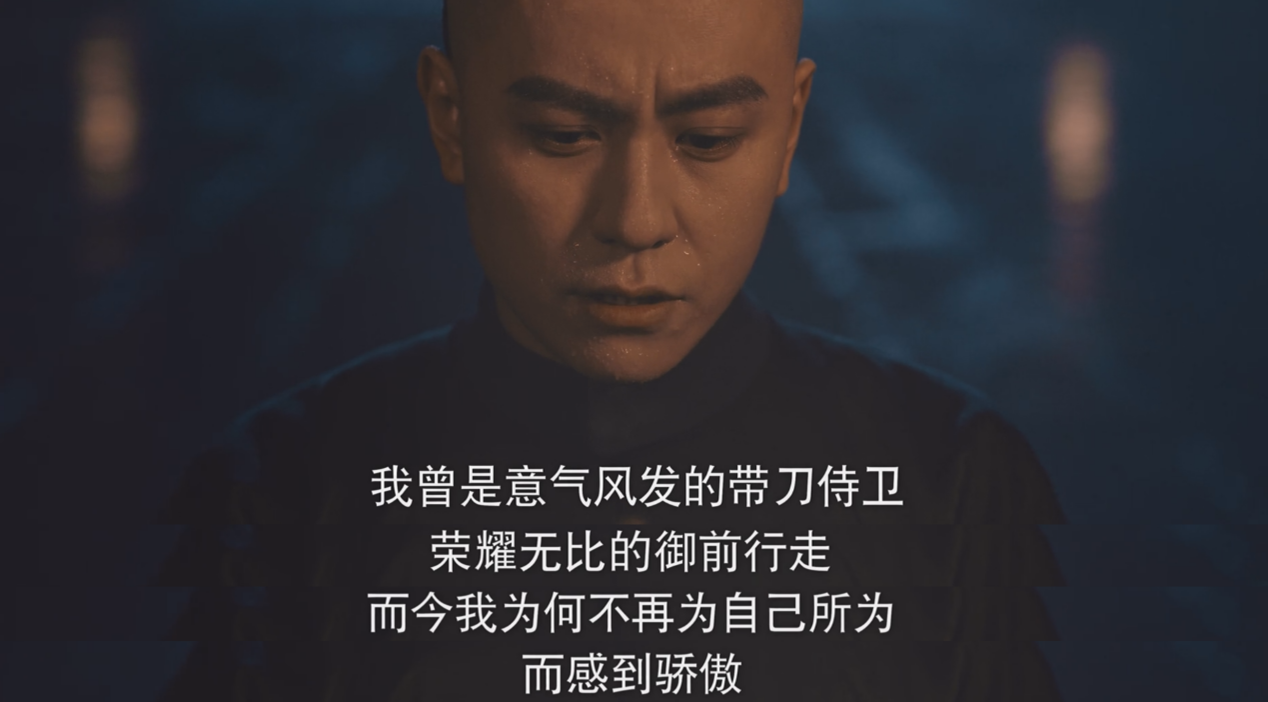
Men Sandao's self-identity crisis is also an important turning point for him
Another reason is the repeated persuasion of the allies to Men Sandao. Men Sandao went from denial, ridicule, and questioning to waiting, curiosity, and hesitation.
Men Sandao finally decided to join because he was touched by people of the same class. His lifelong love, the Qing princess Ulanshan (Huang Mengying), turned out to be a member of the Tongmeng Party. She transcended the selfishness of her own class and saw herself, the world, and all living things. With his lover, Men Sandao no longer had any worries, and he was truly reborn.

Wulanshan (played by Huang Mengying)
The success of the character of Men Sandao is inseparable from Qin Junjie's deep understanding and superb performance of the character. He interprets Men Sandao's inner entanglement, struggle and release delicately and vividly, allowing the audience to intuitively feel the gradual transformation of the character.
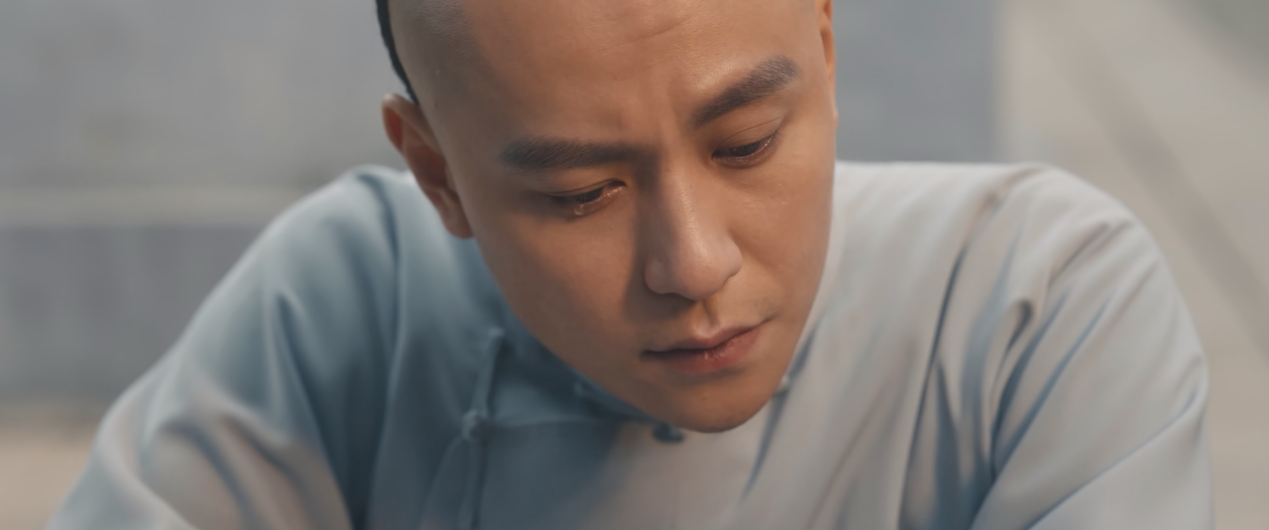
Qin Junjie really brought the character of Men Sandao to life
Men Sandao's growth is not only a breakthrough on a personal level, but also a sublimation of themes and values. Men Sandao's growth trajectory symbolizes how individuals can transcend selfish desires and find self-worth in adversity in troubled times, and finally stand up for national justice and the future of the country.
The group portraits in "Heaven's Path" are also quite outstanding, especially the different fates of Zhuo Bufan and Wang Dibao, which allow the audience to glimpse the fragility of personal destiny under the great history. In turbulent times, ordinary people are the group that bears the consequences of social unrest most directly. Their fate is like duckweed, drifting with the tide. Even if they want to change, they are often powerless due to limited vision, resources and meager power. It is not difficult for the audience to see their own shadows in the experiences of small people. Even if they are in different times, the feeling of powerlessness in the face of history and fate is an emotional experience shared by all human beings.
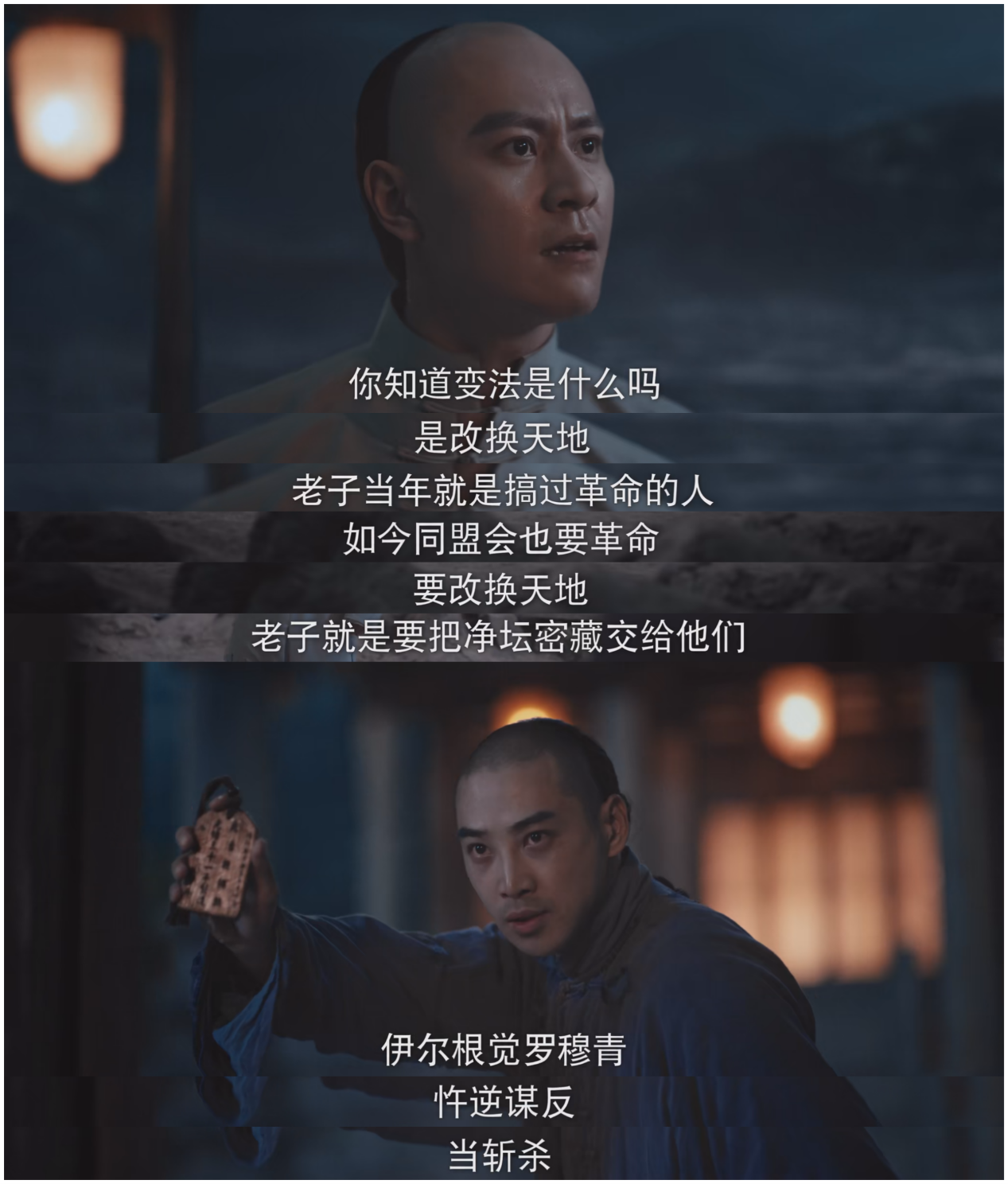
Wang Dibao (Pang Hanchen) is obsessed with the laws of the Qing Dynasty and is pitiful.
Although the ending of "Heaven's Movement" is pessimistic, it has a sense of tragic sublimity. Although Men Sandao, Zhuo Bufan and others did not get what they wanted in the end, their process of fighting against fate and pursuing their ideals shows the indomitable side of human nature, and is also an affirmation of the value of life - even in the torrent of history, individual efforts and choices still have significance that cannot be ignored.

The series has a tragic sublime feeling
From legend to history, and in the glory of humanity, this is the aftertaste left by "The Walking Heaven and Earth". "The Walking Heaven and Earth" is a good drama that should not be ignored. I hope it can have an excellent long-tail effect and let more audiences see it.
